Vietnam: What is the expected tuition of Hanoi University of Science and Technology for the 2024-2025 academic year?
What is the expected tuition of Hanoi University of Science and Technology for the 2024-2025 academic year?
On May 22, 2024, Hanoi University of Science and Technology announced its expected tuition.
The 2024 Enrollment Scheme was issued together with Decision 4688/QD-DHBK in 2024 Download.
This document outlines the expected tuition for full-time undergraduate programs and the roadmap for maximum tuition for each year (if any) as follows:
- Tuition for full-time undergraduate programs at Hanoi University of Science and Technology is determined by course, major/program, based on training costs, and in compliance with State regulations.
- For students conducting school admission in 2024 (K69), the tuition for the 2024-2025 academic year is as follows:
+ Standard Programs: 24 to 30 million VND/year (depending on the major).
Standard Program tuition is specified as follows:
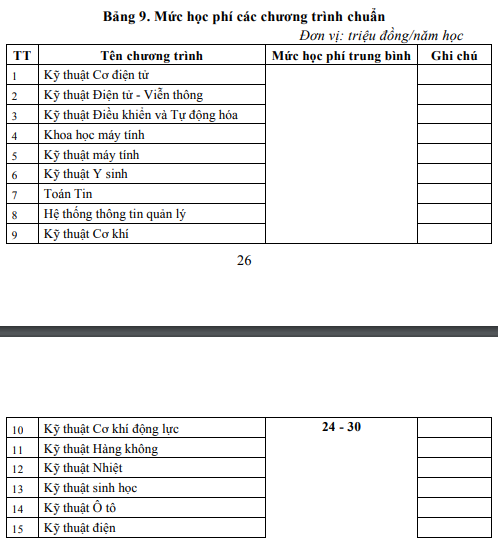
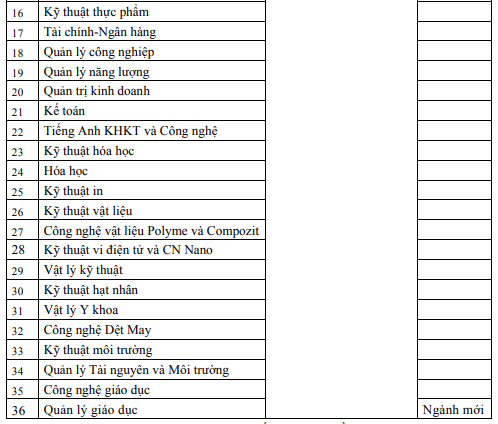
+ For ELITECH Programs: 33 to 42 million VND/year,
+ Data Science and Artificial Intelligence Programs (IT-E10) and Logistics and Supply Chain Management (EM-E14) have tuition of 64 – 67 million VND/year;
They are detailed in the table below:
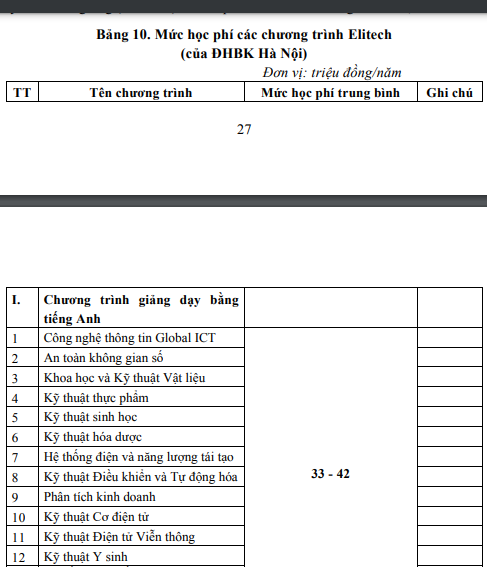
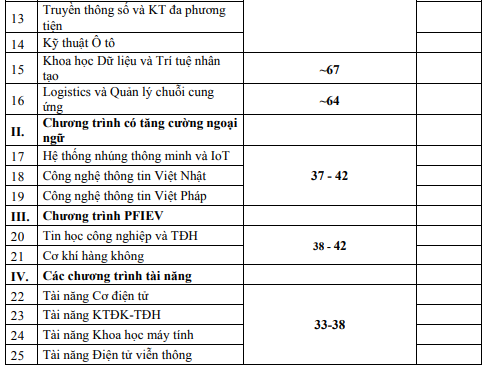
+ International Double Degree Program in Professional English (FL2): 45 million VND/year (including registration fee);

+ Programs with different foreign language proficiency standards (international programs) and international training partnerships (degree awarded by foreign partners): 24 to 29 million VND/semester (TROY-BA and TROY-IT programs have three semesters per year);
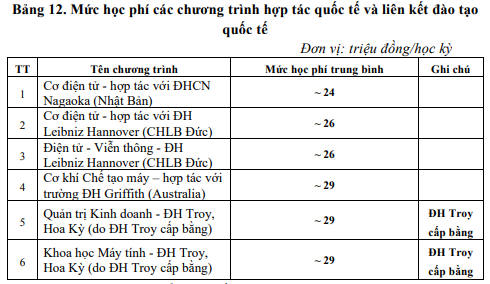
**Note: Regarding the roadmap for maximum tuition for each year, tuition may be adjusted for subsequent academic years but will not exceed a 10% increase per year.
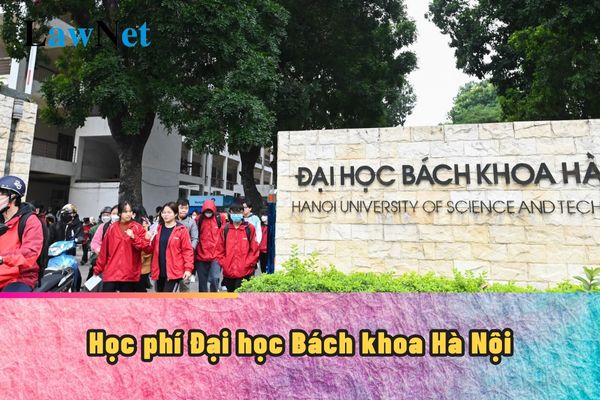
What is the expected tuition of Hanoi University of Science and Technology for the 2024-2025 academic year? (Image from Internet)
What are the requirements for enrollment for full-time undergraduate programs at Hanoi University of Science and Technology?
According to Article 3 of the Regulation on Enrollment for full-time Undergraduate and College programs in Early Childhood Education, issued together with Circular 08/2022/TT-BGDDT, Hanoi University of Science and Technology must adhere to the following requirements during enrollment for full-time undergraduate programs:
- Training institutions exercise autonomy and are accountable for admissions, ensuring compliance with the law and are responsible before the law.
- Each training institution implements all necessary measures to create favorable conditions and equal opportunities for all candidates; selects candidates whose aspirations and abilities best meet the requirements of the program and major.
- Training institutions coordinate closely with the support and supervision of the Ministry of Education and Training to ensure consistency, uniformity, and connectivity within the system; improving the quality and efficiency of admissions for each training institution and the entire system.
What basic principles must universities adhere to in enrollment for full-time undergraduate programs?
According to Article 4 of the Regulation on Enrollment for full-time Undergraduate and College programs in Early Childhood Education, issued together with Circular 08/2022/TT-BGDDT, universities must adhere to the following principles in enrollment for full-time undergraduate programs:
Principle [1]: Fairness to candidates
+ Regarding information provision: Every interested candidate will be provided with full, clear, reliable, and consistent information promptly, enabling them to make appropriate decisions and best prepare for the admissions process;
+ Regarding opportunities to apply: No candidate will lose the opportunity to apply due to regulations not related to their qualifications or abilities (except for specific regulations by the Ministry of Public Security and the Ministry of National Defense concerning defense and security fields); or due to cumbersome and costly application processes;
+ Regarding capability assessment: Candidates must be evaluated objectively, fairly, and reliably concerning their study potential and prospects for success, meeting the requirements of the training programs and disciplines;
+ Regarding admission chances: Candidates must be granted the highest opportunity to gain admission and the right to determine their preferred training programs and disciplines among those they qualify for;
+ Regarding commitment fulfillment: Educational institutions must fulfill their commitments to candidates, providing advice, support, and addressing complaints, safeguarding the legitimate rights of candidates in risky situations.
Principle [2] Equality among educational institutions
+ Regarding cooperation: Educational institutions should cooperate equally to enhance the quality and effectiveness of the admission process while bringing the best benefits to candidates;
+ Regarding competition: Educational institutions should compete honestly, fairly, and healthily in the admissions process according to competition law.
Principle [3] Transparency to society
+ Regarding information transparency: Educational institutions are responsible for publicly announcing full, clear, and prompt admission information through suitable media for public and regulatory oversight;
+ Regarding accountability: Educational institutions are obliged to report upon request by regulatory agencies and explain issues of great concern to the public in a suitable manner.
>>>Download the Enrollment Scheme 2024 issued together with Decision 4688/QD-DHBK in 2024.

